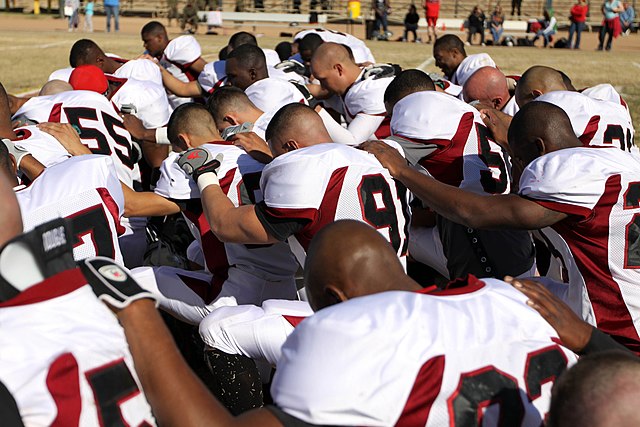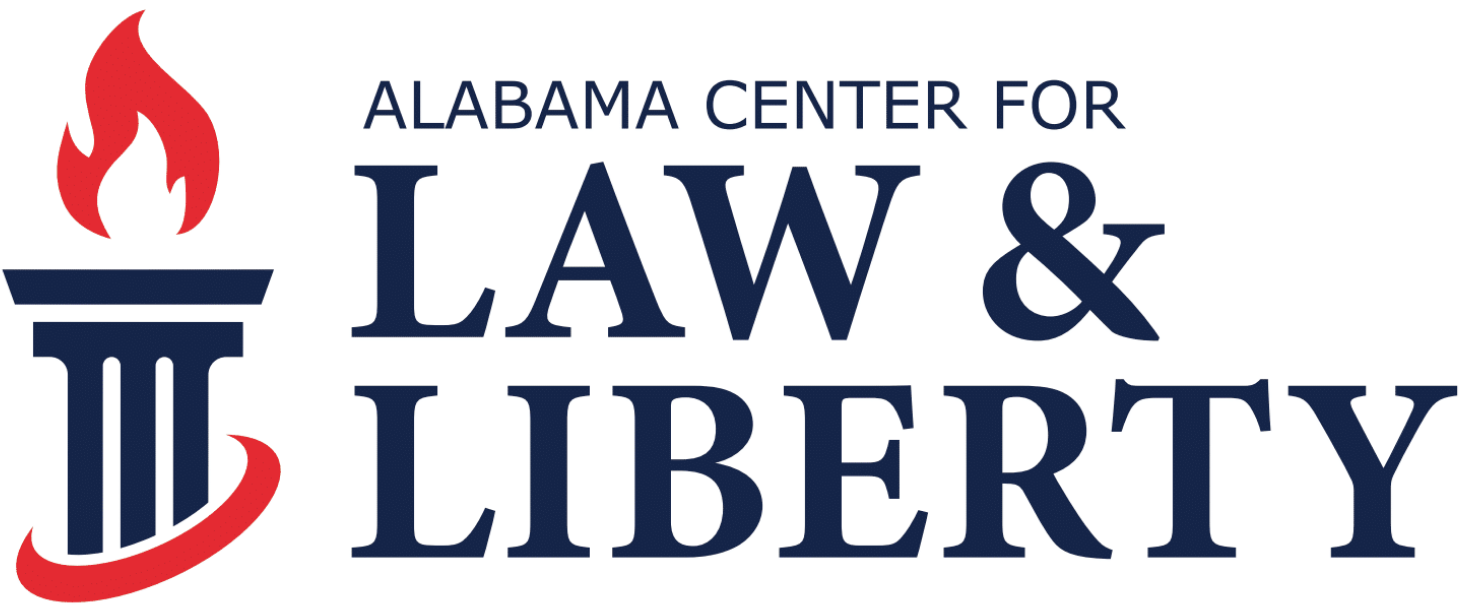Kennedy
v.
Bremerton School District
ACLL Role: Amicus
Case Start Date: August 9, 2016
Deciding Court: U.S. Supreme Court
Original Court: Limited Government
Practice Area(s): Limited Government
ACLL Role:
Case Start Date:
Original Court:
Practice Area(s):
Amicus
August 9, 2016
U.S. District Court Western District of Washington
Limited Government
CASE SNAPSHOT
Coach Joe Kennedy, a Christian and ex-Marine, had the custom of taking a knee and praying at the 50-
yard line after every public high school football game that he coached. The school district eventually
fired him for this practice, claiming that as a government employee, his conduct violated the
Establishment Clause of the First Amendment. The Supreme Court of the United States has now agreed
to hear his case. While Coach Kennedy’s lawyers have been arguing primarily that the Free Speech
Clause protected his actions, ACLL is arguing that the Establishment Clause does not prohibit Coach
Kennedy’s right to publicly pray at the 50-yard line after the game.
STATUS
ACLL filed a friend-of-the-court brief at the United States Supreme Court on February 16, 2022.
FOR THE MEDIA

CASE SUMMARY
Background
After serving in the United States Marine Corps for 18 years, Joe Kennedy became an assistant coach for the varsity football team at Bremerton High School in Washington state. When he began coaching, he made a commitment to God to give Him thanks after each game. Thus, for seven years, Coach Kennedy had the custom of kneeling at the 50-yard line after football games to give thanks to God for what his players were able to accomplish. While he started off praying alone, some of his players began to notice and asked if they could join him. “It’s a free country,” he told them. Sometimes his players would join him, and sometimes he would pray alone. It is undisputed that he never pressured any of his players into joining him for prayer after the games.
After seven years of engaging in this practice without complaint, the school district finally noticed that Coach Kennedy prayed after the games. When the district ordered him to cease, he initially complied, but he immediately sent a letter through his attorneys to the school district seeking a religious accommodation that the law protected. Instead of granting his request, the school board issued a sweeping new policy forbidding any employee from doing anything like what Coach Kennedy had done. After the district doubled down, Kennedy decided he could not break his commitment to God and resumed praying at the 50-yard line. After the school district placed him on unpaid administrative leave, this lawsuit finally commenced in 2016.
In short, the United States Court of Appeals for the Ninth Circuit, which has the reputation for being the most liberal federal appeals court in the country, ruled against him twice. One of the Ninth Circuit’s judges even chided him for failing to pray in the way that Jesus prescribed in the Sermon on the Mount! Not only did this judge fail to realize that there were plenty of times in the Gospels where Jesus prayed publicly too, but he also believed it was his province to tell Coach Kennedy how to pray. This was unacceptable. After the Ninth Circuit’s last ruling, the United States Supreme Court granted certiorari and agreed to hear the case.
How We Got Here: Decades of Bad Precedent
The Establishment Clause of the First Amendment, which applies to the States through the Fourteenth Amendment, forbids the government from making any “law respecting an establishment of religion.” The Framers’ primary concern was forbidding the federal government from establishing a national church, as England had done. Justice Scalia reasoned that the touchstone of traditional “establishments” was coercion through threat of force or penalty of law. Thus, the Establishment Clause forbids the government from forcing people to worship God or support a religion with which they disagree.
But beginning in 1947, the United States Supreme Court began misinterpreting the Establishment Clause and perverting its meaning. While Justice Joseph Story, a legendary figure in American jurisprudence, argued that the Framers intended to promote Christianity as long as doing so would not violate a person’s rights of conscience, the modern Supreme Court interpreted it to mean that the government could not endorse or encourage religion or even acknowledge God in a noncoercive way. Even Thomas Jefferson, who did not appear to be an orthodox Christian, went to church at the United States Capitol every Sunday because he realized Christianity was good for society and wanted to encourage it. But despite the fact that the Constitution did not change between its ratification and now, the Supreme Court abused the Establishment Clause to drive God out of the public square. From the 1940’s until 2005, the Supreme Court largely employed this kind of thinking, which is eventually what cost Coach Kennedy his job.
Course Correction: Focus on History
But since 2005, the Supreme Court has been readjusting its approach to focus more on what history teaches than about whether someone is offended by a religious display. This approach has been gradually gaining ground, which has resulted in victories for prayer, 10 Commandments displays, and crosses on public property. Though the analysis gets complicated, history is the emerging dominant factor in this analysis. This is a win for conservatives, who believe that the Constitution’s meaning is fixed and that history informs the original meaning of the text.
In this case, this nation has an unbroken tradition of public prayer by public servants. Every President from George Washington onward has either publicly prayed for God’s help in executing his duties or has asked the public to pray for him in such a manner. Prayer begins every day that Congress is in session. Every time that the United States Supreme Court takes the bench, the last words before they begin business are, “God save the United States Supreme Court and this honorable Court.” This has been the tradition since the days of Chief Justice John Marshall.
If prayer can be done this way, then why can Coach Kennedy not pray in the same way? It would be an entirely arbitrary distinction to distinguish between the two. Furthermore, history reveals that since football was created in the nineteenth century, prayer has always been associated with the game. Thus, Coach Kennedy has not been doing anything new; he has been carrying on a tradition that has existed for over 100 years.
It is worth noting that this is the first Establishment Clause case to come to the Court since Justice Amy Coney Barrett took the bench. Because of her addition to the Court, conservatives have reason to be optimistic that the Court will take another step towards recognizing that history, not bad precedent, should inform the Court’s interpretation of the Establishment Clause.
Importance to Limited Government
Our Framers believed that because God is sovereign, the State may not interfere with the duties that man must render to Him. This principle is the basis of God-given rights, which, as explained in our Declaration of Independence, is the cornerstone of limited government. Thus, in order to push government back into its limited sphere, it is critically important to allow people to “render unto God what is God’s,” lest Caesar come to believe that he is God rather than under God.
(Matthew 22:21.)
Alabama Center for Law & Liberty 2213 Morris Ave, Floor 1 Birmingham, AL 35203 256-530-0519
The Alabama Center for Law and Liberty is Christian non-profit law firm.
©Alabama Center for Law & Liberty. All rights reserved.
